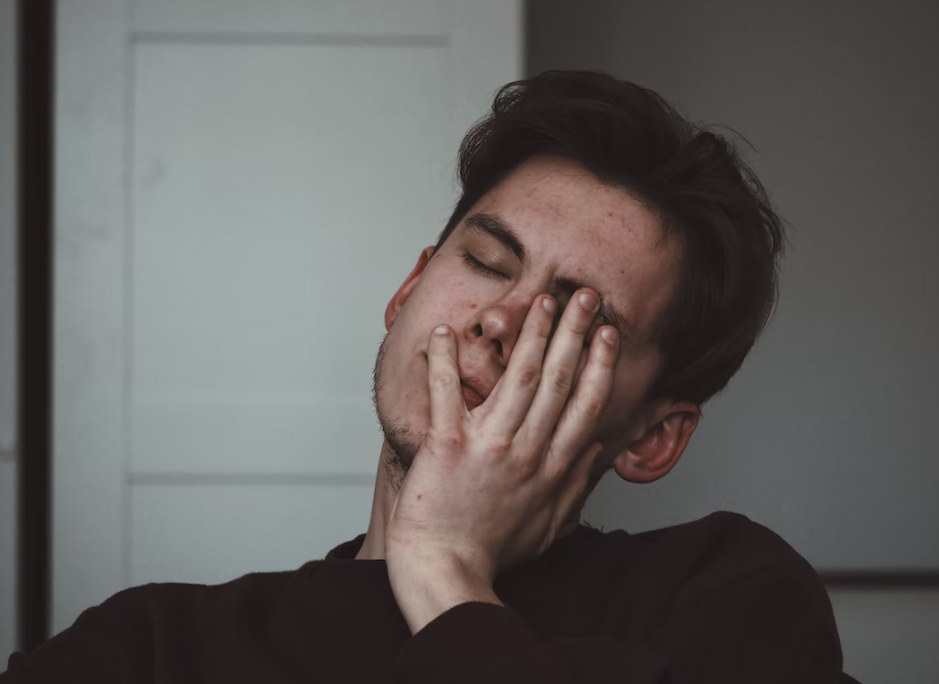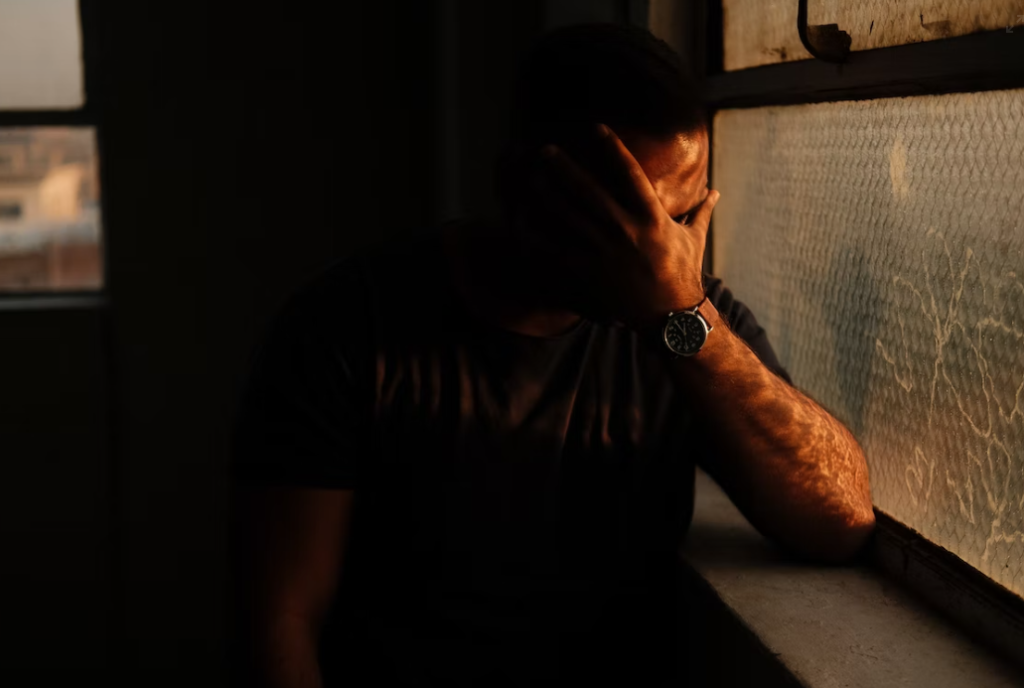Mantra When Feeling Anxious
Understanding how to use a mantra when feeling anxious can be a powerful way to manage your anxiety.

Selfpause Affirmation App
Download the app to get 1,000’s of affirmation meditations and everything you need to write, record and listen to your own.
Using a mantra when feeling anxious can be a powerful way to control your anxiety. In her article, Alexandra Massey examines the art of mantra meditation and its benefits for clarity and control. With work deadlines and home-schooling, many people are experiencing an increasing amount of stress. Others are returning home to live with their parents or are juggling multiple jobs. These situations have combined to create a pandemic of stress in society.
Self-affirmations

You can use self-affirmations to help you feel better. These statements can be repeated up to five times a day, and you can write them down in a journal or practice them in front of a mirror. However, remember that these statements are not a cure-all for anxiety, and they are not a substitute for clinical treatment.
Self-affirmations are also useful to prepare yourself for stressful situations. Whether it’s a flight, a job interview, or a big presentation, you can use them to make yourself feel more confident. The key is to use affirmations that are realistic and focus on positive phrases. Also, be sure to stay in the moment as you say them.
Affirmations are most effective when they resonate with the speaker. Choose positive affirmations that relate to you personally. You must believe in them in order for them to work. Affirmations are not magic, but they can help you change unwanted thoughts and beliefs. If you repeat them frequently, you’ll feel more confident and less anxious.
Research has shown that affirmations can help you manage your anxiety. Affirmations have been shown to increase brain activity in the ventromedial prefrontal cortex, which helps the body analyze potentially threatening information. They can also help you achieve goals and change your lifestyle. Although affirmations may not work for everyone, they have helped many people improve their lives and make the necessary changes.
Many affirmations can be said in a variety of ways, and you should find one that feels natural and is something you will actually do. For example, some people prefer saying affirmations out loud, others prefer typing them into a computer, while others prefer recording them onto an audio recording.
Mantras

Using mantras when feeling anxious can be a powerful tool to help you manage your emotions. These phrases remind you that you are the one in control of how you feel and that you are in control of your thoughts. They can also help you manage the social anxiety you’re experiencing by reminding you that you belong and that people want to be around you.
One way to practice mantras when feeling anxious is to make them a part of your daily grounding practice. Many people use mala beads to count the mantras, while others count them on their fingers. Reciting these phrases regularly is a great way to deal with anxiety attacks, because the repetition helps your brain internalize the positive messages.
Another great way to combat anxiety is to develop a positive attitude. Many times, anxiety is a conditioned reaction that stems from past experiences. By shifting your attitude, you’re free of past experiences and can start thinking more creatively. Changing your mindset will improve your outlook, increase your creativity and reduce anxiety.
In addition to using mantras to reduce anxiety, you can also practice mindfulness and meditation. Both of these methods are great for treating anxiety, but you may need to find what works best for you. It’s always a good idea to seek the help of a trained professional if these techniques are not effective for you.
Another helpful mantra to use when you’re feeling anxious is Om Mani Padme Hum, which means “Praise to the Jewel of the Lotus.” It reminds you that there is good that emerges from mud. By focusing on this mantra during your meditation, it’ll calm your thoughts and call on compassion for yourself.
Journaling

Journaling can be an effective tool to deal with anxiety and stress. The act of writing down your thoughts and feelings can help you identify what triggers your anxiety, and you can use this information to make changes. For optimal results, journaling should be done at least five minutes twice a week. Start small, and you’ll soon find that journaling becomes a habit.
You can also write down positive affirmations to counteract your anxiety in your journal. This will help you release old patterns of consciousness that cause you to feel anxious. You can write down these affirmations in a blank journal, or use a guided mindfulness journal, such as Vertellis Chapters.
Another mantra you can use is the phrase, “This too shall pass.” This phrase can help you channel your anxious feelings by reminding you that these feelings will pass. It can also help you to remind yourself that you’ll be fine. As long as you’re not in the moment when the anxiety attacks, you’ll be fine.
A second benefit of journaling is that it helps you understand yourself better. Many people suffer from performance anxiety but never explore the source of their fear. Instead, they accept it as a fact of life. By writing about what causes your anxiety, you can identify the real fears that are causing it. Most often, these fears go deeper than simply not getting a good grade or letting the team down. This knowledge is necessary in order to overcome the anxiety.
Writing about the challenges you are facing can help reduce your anxiety. By identifying the things that cause you to feel anxious, you can make changes in your life.
Breathing techniques

Breathing techniques for anxiety and panic attacks can help you deal with the symptoms of these conditions. They can relieve the rapid breathing rate that is so common among anxiety sufferers. These techniques stress the importance of control over breathing. They help you focus on your breath and repeat the process over again.
These breathing techniques are easy to perform anywhere. They can be used while standing up, sitting in a chair, or lying on a bed or yoga mat. If you’re sitting, you should wear comfortable, loose clothing and have your legs bent slightly. If you’re lying down, you can also bend your knees slightly to flatten your feet.
Breathing exercises for anxiety are easy and simple to do. You can do them whenever and anywhere you feel stressed. Start slow and start with a short period of two minutes, and gradually increase the duration as you get used to it. Once you’ve mastered this technique, you can incorporate it into your daily routine. It can help you cope with the anxiety that can be so crippling. Just remember that there’s a way to reduce your anxiety and get through the day without using drugs.
Deep breathing is one of the most effective tools for managing anxiety. It lowers stress levels in the body by sending a signal to the brain to calm down. Practice deep breathing exercises regularly to strengthen your ability to relax. The more you practice, the more you’ll be able to switch from shallow to deep breathing in stressful situations.
Exercises

While it is important to understand that you are not alone in feeling anxious, there are also ways to manage this condition. The first step is to get some professional help for your condition. You may also be able to do relaxation exercises to quiet your mind. While doing these exercises, you must focus on the present moment. You may experience distractions along the way, but keep concentrating. Soon you will feel more calm and less anxious.
The most effective exercise for anxiety is one that involves a physical activity. Exercises like running and walking can help to divert attention away from the anxiety-causing feelings. Often, people experience anxiety because they believe they are not good enough to achieve certain goals. Some people try to compensate for their lack of success by buying high-end gadgets or joining a gym. However, these solutions do not solve the underlying problem.
Exercising is important because it helps to increase your heart rate and improve fitness. Increased fitness leads to a slower resting heart rate, which helps offset the feelings of anxiety. Even if you only do five minutes a day, you can achieve the same effect. It is also important to get regular exercise because it improves your mood and your memory.
Exercises to do when feeling anxious are important for mental health as well as physical health. Exercise can boost the body’s immune system and keep hormones balanced. If you exercise regularly, it may even help you defeat those anxious thoughts.
Our Top FAQ's
The purpose of using a mantra when feeling anxious is to provide a focus for the mind and to help calm and regulate the body’s stress response. A mantra is a word or phrase that is repeated mentally or aloud as a means of focusing the mind and calming the nervous system. Some people find that the repetition of a mantra helps to bring a sense of clarity and peace, which can be especially helpful when feeling anxious or overwhelmed.
Choosing a mantra that is meaningful and effective for you is an individual process. Some people find it helpful to use a mantra that has personal significance, such as a phrase from a favorite song or poem, or a phrase that holds special meaning for them. Others find it helpful to use a mantra that is related to their values or beliefs, or that embodies a positive message or intention. You can try out different mantras and see which ones resonate with you and seem to be most effective in helping you to feel calmer and more centered.
Yes, you can use a mantra in combination with other anxiety-reducing techniques, such as deep breathing or progressive muscle relaxation. In fact, combining different techniques can often be more effective than using any one technique in isolation. For example, you might try repeating your mantra while taking slow, deep breaths, or you might use your mantra as a focus while practicing progressive muscle relaxation.
To use a mantra effectively when feeling anxious, it can be helpful to find a quiet place where you can sit or lie down and focus on your breath. Close your eyes and take a few slow, deep breaths, then begin repeating your mantra to yourself, either silently or aloud. You can repeat your mantra for as long as you like, or until you feel your anxiety beginning to ease. It can be helpful to set aside a specific time each day to practice using your mantra, so that you can get into the habit of using it as a tool for managing anxiety.
Mantras can be used to help prevent anxiety as well as to manage anxiety that is already present. By regularly incorporating a mantra into your daily routine, you may find that it becomes a helpful tool for maintaining a sense of calm and balance, even when you are facing challenges or stressors. Additionally, using a mantra can help to train the mind to focus and stay present in the moment, which can be especially helpful in preventing anxiety that arises from worry about the future or rumination on the past.
